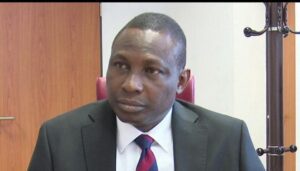
Businesses crumble in Kaduna as traders lament scarcity of new, old naira notes
Traders at Central Market in Kaduna, have lamented the scarcity of the old and redesigned Naira notes, attributing it to the cause of low patronage in recent time.
Speaking to news correspondent at the market on Wednesday, the traders said they had deposited 99 per cent of their monies in banks, to keep up to the initial deadline of the old Naira denominations.
They lamented that after they deposited their cash, it became difficult and sometimes impossible to get the new currencies to continue their businesses due to very long queues at Automated Teller Machines (ATM) loaded with small amounts of monies across the state.
The traders alleged that some of the banks at some points, also ran out of cash even at pay points inside the banks.
A trader, Hajiya Bashirat Muhammad who sells kitchen utensils, said patronage had reduced drastically.
She said that some of her customers had liked to patronise her but they would always say they didn’t have cash at hand.
Muhammad noted that it was not a problem because she accepted transfers even with the increasing network challenges.
“The problem is how to withdraw the little I made from my business, because banks are not putting enough money at ATMs, the long queues alone are something to worry about.
“When you finish exhausting energy at the ATM queues, suddenly they will be unable to dispense cash because they have been exhausted by other customers.
“Before the deadline of the old Naira notes denominations, I took all my old notes to the bank, now to even get them again is a serious problem.
“Yesterday, I had to borrow money from someone for my transport fare to go back home,” she said.
Another trader in Kantin Kwari Motor Park, all within the Central market, Mrs. Elizabeth Auta who sells food items, also lamented low patronage, saying that people no longer bought things the way they used to.
A buyer in the market, who identified herself as Mama Blessing, said, “I have been in this market since morning to buy things but because I don’t have cash, I couldn’t buy what I wanted.
“I went to withdraw, some of the ATM are not dispensing cash. I don’t know what to do because my children need to eat food when they come back from school,” she said.
Also speaking, a Point of Sale (POS) operator, Salisu Yahya, also complained about the scarcity of both the new and old naira notes, noting that it is very difficult to get cash from banks.
He said, “On Monday I was at the ATM before 6 a.m., after spending more than 4 hours there, I couldn’t get cash, I had to go to another ATM,” he said.
He appealed to the Central Bank of Nigeria (CBN) to ensure availability of new Naira notes in order not to push Nigerians into more sufferings.



